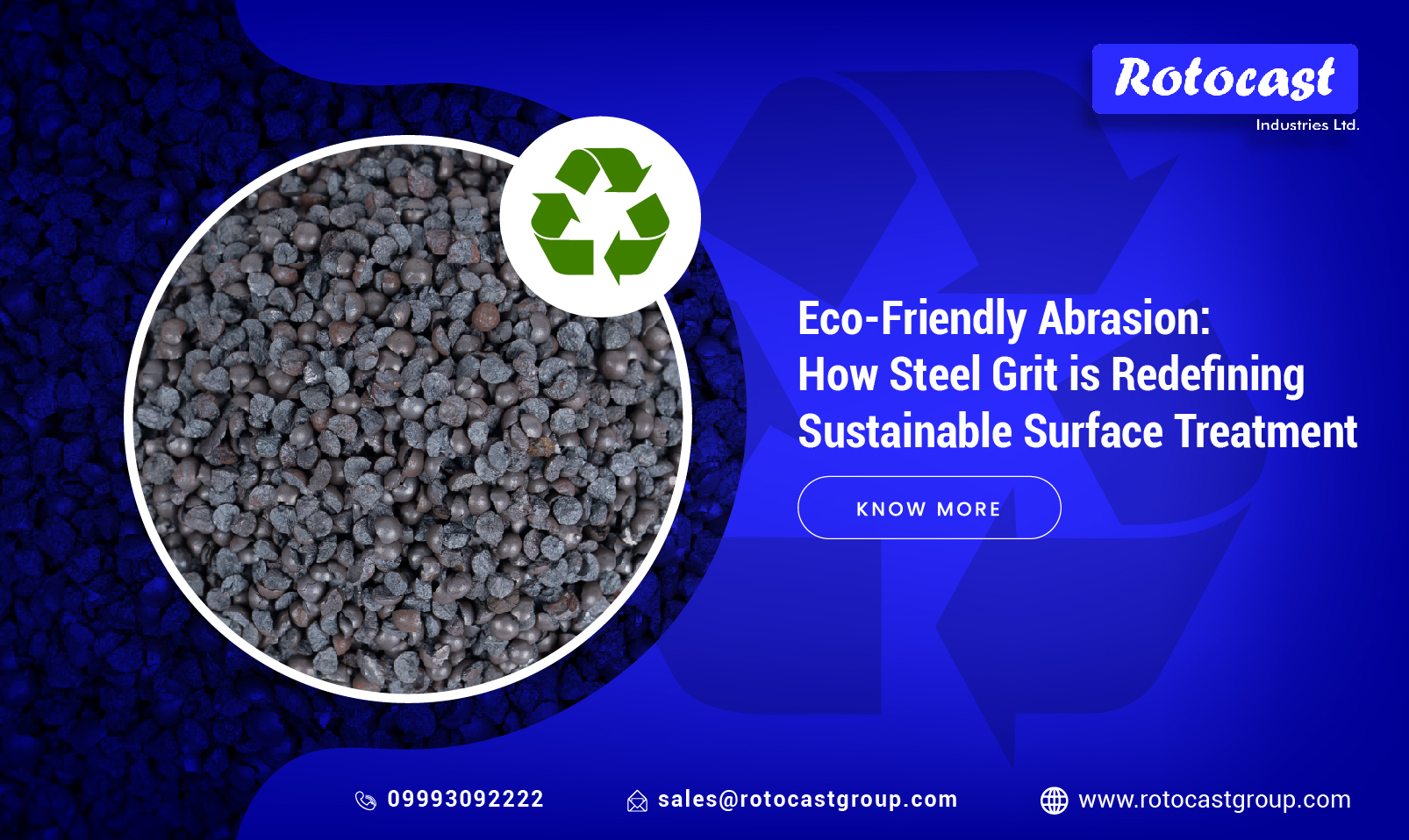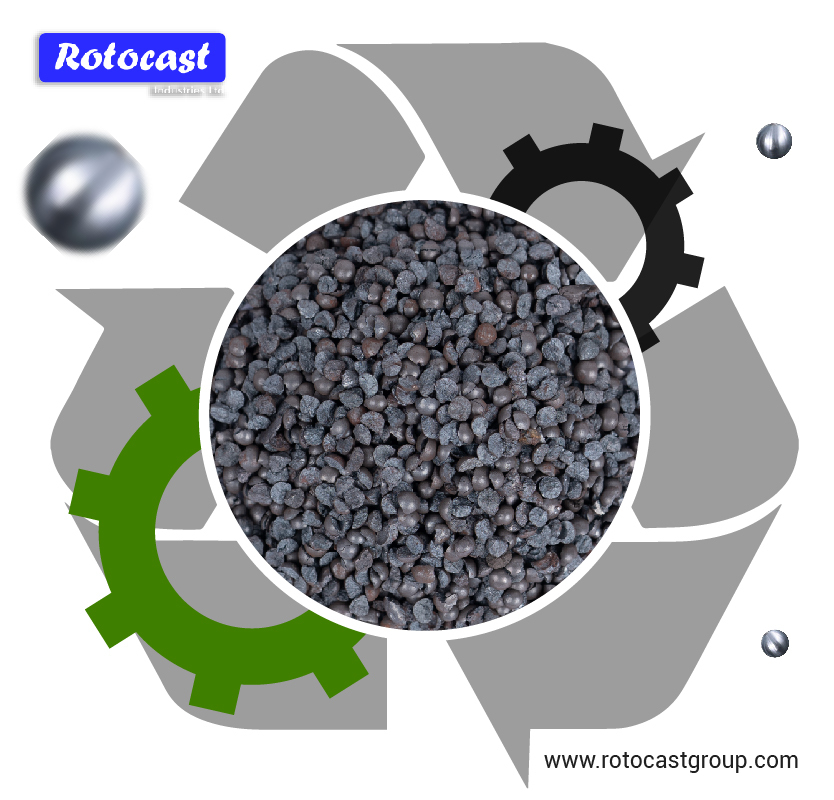
In an era where sustainability is crucial, industries are constantly looking for novel ways to lessen their environmental impact. One such breakthrough is the use of steel grit in surface treatment techniques, which is promoted by Rotocast. This eco-friendly abrasive is changing the way we approach surface preparation, with major environmental and operational advantages.
Steel grit is a long-lasting, recyclable abrasive made from high-carbon steel. Unlike traditional abrasives like sand or slag, it may be reused repeatedly without losing efficacy. This reuse potential considerably minimizes waste and the need for continual replenishment, making it a long-term alternative for enterprises looking to lessen their environmental impact.
 Rotocast has been in the forefront of promoting steel grit as a sustainable surface treatment option. Our attention to eco-friendly activities is shown in their modern manufacturing techniques and quality standards. We use it to assist clients achieve exceptional surface finishes while adhering to severe environmental laws.
Rotocast has been in the forefront of promoting steel grit as a sustainable surface treatment option. Our attention to eco-friendly activities is shown in their modern manufacturing techniques and quality standards. We use it to assist clients achieve exceptional surface finishes while adhering to severe environmental laws.
One of the primary environmental benefits of steel grit is its capacity to minimize dust and pollutants. Traditional abrasives can generate large amounts of dust, which contributes to air pollution and poses health concerns to workers. Steel grit, on the other hand, produces very little dust, resulting in a cleaner and safer working environment. This reduction in airborne particles not only improves air quality, but also reduces the environmental impact of dust disposal.
Furthermore, it’s lifetime requires fewer resources for manufacturing and transportation, cutting the carbon footprint even further. Rotocast’s usage of steel grit is consistent with the circular economy concepts, which emphasize resource efficiency and waste reduction.
To summarize, steel grit is redefining surface treatment by offering an environmentally friendly solution that combines efficiency and sustainability. Our commitment to this new abrasive demonstrates their desire to lead the industry toward a better future. It may help businesses improve their operating efficiency while drastically lowering their environmental impact, making it a win-win solution for both industry and the earth.

